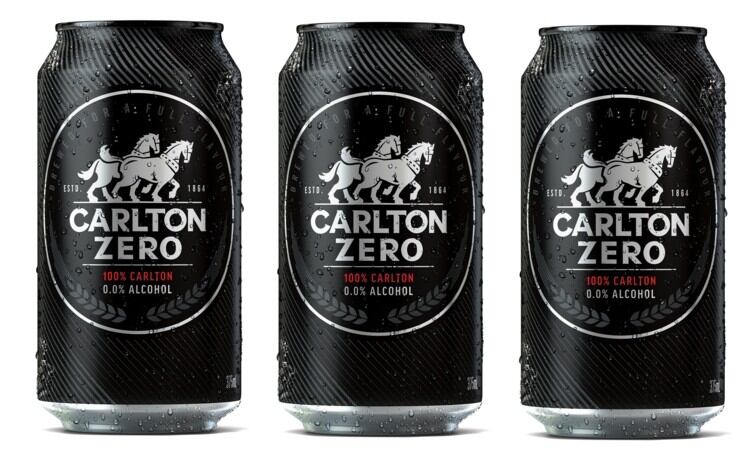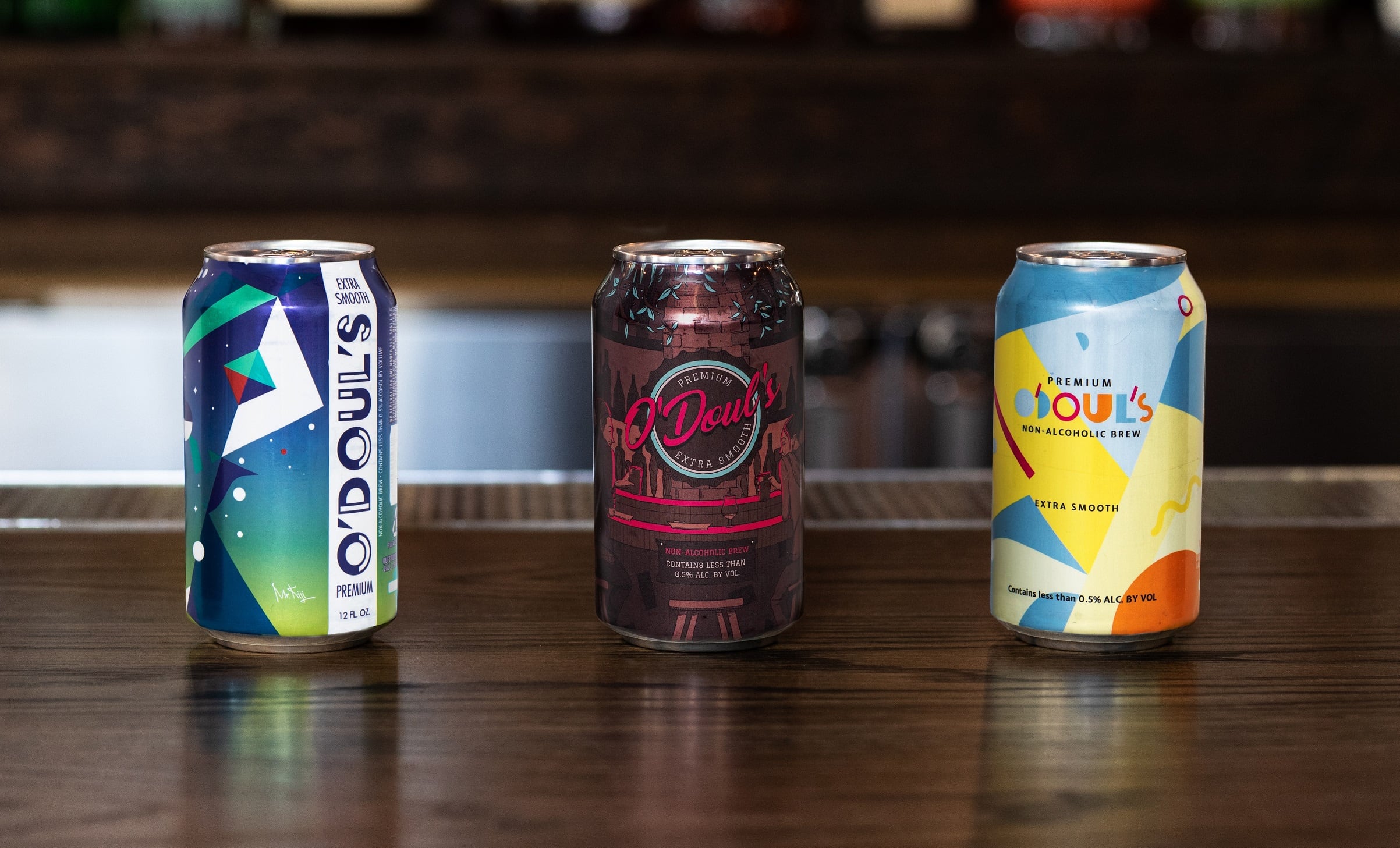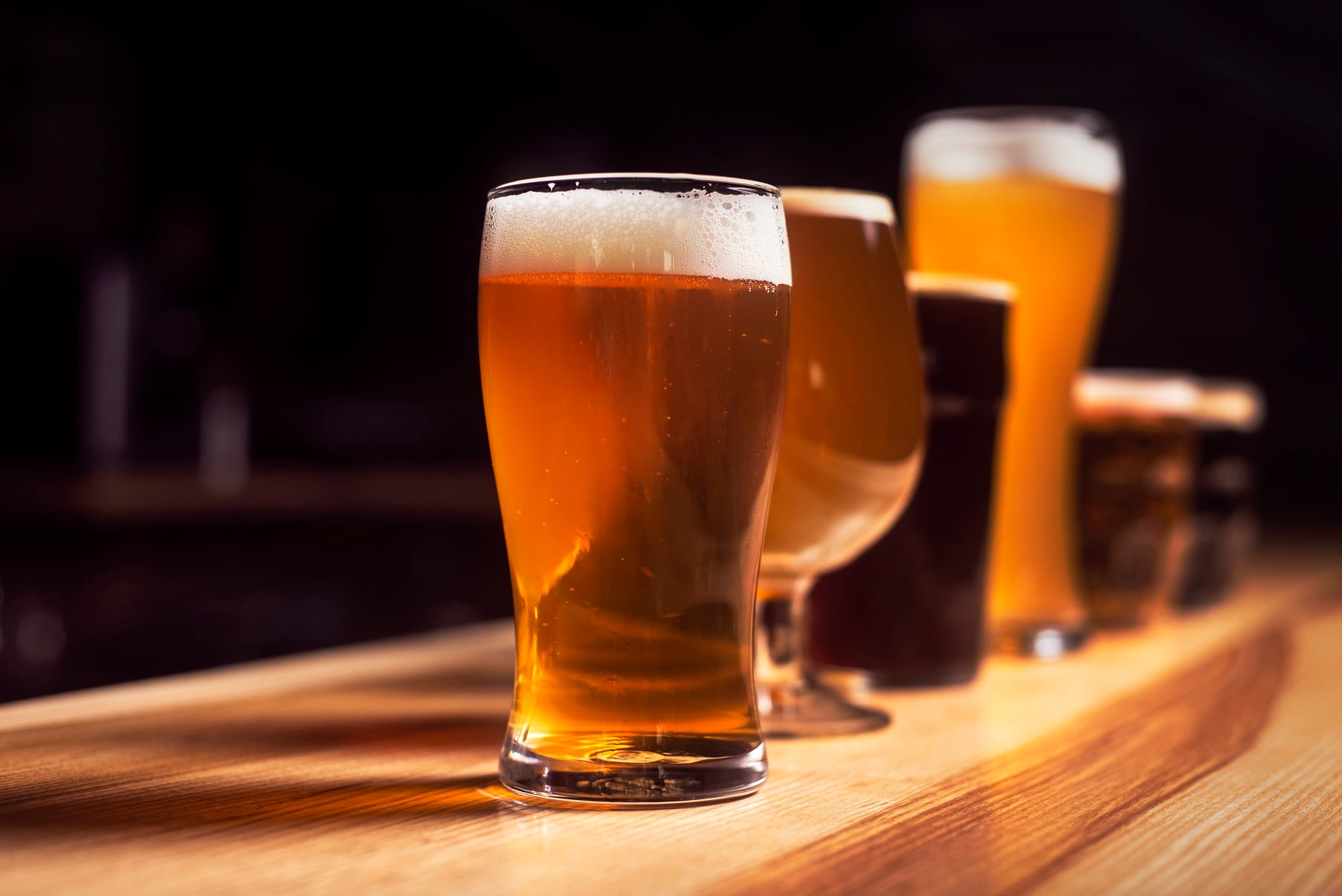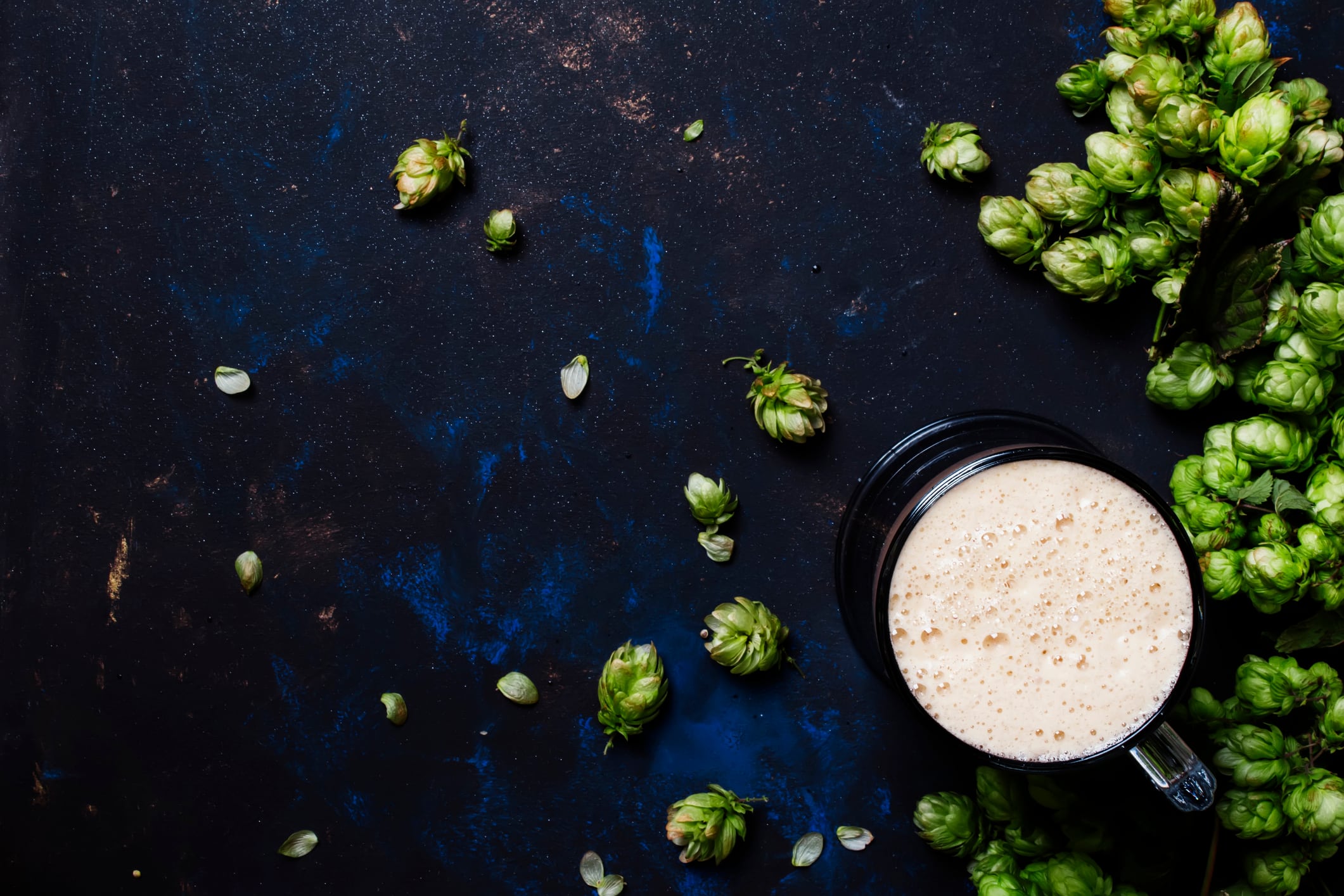Two co-workers tuck into lunch at their office desks. The man on the right of the screen announces he has a “chicken salad and a Carlton Zero” non-alcoholic beer. A tight, white, long-sleeved shirt covers his ripped torso. His hair is great, he clearly moisturises and his teeth would glint in the sunshine.
By contrast, the worker on the other side of the screen is geeky, with a beard. Early stages of man-boobs are covered by his nerdy shirt and tie. In front of him is a sloppy cheese sandwich and a red tin that says “Cola” on the front of it.
The guy with the great teeth looks on aghast as his colleague pours a great mass of sugar out of the can into a glass. So much so that the drink smashes through the desk under the weight of it.
“Ten times less sugar than a regular soft drink,” says the voice over. “Carlton Zero. 100% beer. 0.0% alcohol.”
With this television advert, released in May, Carlton & United Breweries has gone squarely up against traditional soft drinks in Australia by billing the first non-alcohol beer in its 180-year history as a lunchtime drink for the workplace.
Driving a non-alcoholic beer revolution
Down Under, where men swig grog and beer has traditionally been swigged more for the alcohol than the joy of it, the beverage is seen as nothing short of genuine innovation that has been shaking things up. It also comes at a time when craft has been cutting into the major brewers’ market share.
“We launched Carlton Zero because beer lovers told us they wanted more opportunities to enjoy beer responsibly,” said CUB chief executive Peter Filipovic. “Adults want alternatives to sugary soft drinks.”
As non-alcohol, low alcohol and mid-strength beer now make up a quarter of CUB’s sales, Carlton Zero is “driving a non-alcoholic beer revolution” in Australia, the company says, with bottle shop sales of non-alcoholic beer increasing 13-fold in the six months after Zero’s launch last August, compared to the same period a year earlier.
Market research by CUB places adults of all ages as Carlton Zero drinkers, particularly men and women between 25 and 34 with fit and active lifestyles. Women make up 41% of Carlton Zero’s market, compared to 37% for alcoholic beers.
The Australian product even brings beer into the working day for Australians for whom, unlike their cousins in the United Kingdom, lunchtime alcohol is seen to be far less acceptable.
“It’s giving people the freedom to enjoy their favourite drink in places where beer is not usually consumed,” Mr Filipovic said.
“There’s no reason why you can’t enjoy Carlton Zero at lunchtime at the office or if you are a designated driver.”
A fine line
Last month, Carlton Zero even got a mention on the well-regarded annual Australian Financial Review BOSS magazine’s list of the most innovative manufacturing and consumer goods companies.
This year’s list named the 10 most innovative companies across a range different industries after receiving more than 800 nominations. It was as if zero-alcohol beer were an unprecedented introduction.
Industry-expert judges, in conjunction with innovation consultancy Inventium, said that Carlton Zero was commended for actually mimicking the flavour of a traditional brew.
“Judges recognised that Carlton Zero has given beer lovers what they’ve wanted for ages: a non-alcoholic beer that actually tastes like beer,” said CUB’s insight and innovation director Adam Murphy. “We’re proud to have helped develop a culture of innovation.”
Despite being non-alcoholic, Carlton Zero is marketed to adults in accordance with the Alcohol Beverages Advertising Code (Abac). Yet this approach has not been without its critics.
The Foundation for Alcohol Research and Education (FARE) notably complained about a radio advertisement for Carlton Zero, which brought into focus the “clunky” rules regarding non-alcoholic drink advertising for otherwise alcoholic drinks.
No, low and mid-strength beer now makes up almost 25% of CUB's beer sales by volume. This is up from just 10% only five years ago.
Even though even though product contains no alcohol, it was still an “extension” of the “highly recognisable” Carlton alcoholic beer brand, FARE alleged.
The pressure group claimed the radio ad, which aired in Perth, provided examples of places where it is “highly inappropriate or irresponsible to consume alcohol”. Its 12pm Sunday time slot was also problematic for FARE as children and young people would likely be listening to the radio at that time.
Nevertheless, Abac took on board CUB’s argument that Carlton Zero should not be subject to the regulator’s rules as it is by definition not an alcoholic beverage. The advertisement had been evaluated and passed by its pre-vetting service.
“A common sense approach needs to be adopted when applying the standards and it would be a mildly perverse outcome to conclude that an ad which seeks to promote a non-alcoholic beverage as an alternative to an alcoholic beverage was struck down for promoting the irresponsible use of alcohol,” it said in its final ruling.
Sector growth
Internationally, drinks industry analysts IWSR revealed earlier this year that the non-alcohol beer market is expected to grow 8.8% in the next five years, which may not appear to be a huge number at first glance, but it is when considered against a backdrop of declining beer sales globally, at 2.2% in 2018.
Low-and no-alcohol beers make up one of the fastest growing segments of the US$600bn global beer market, according to research firm Global Market Insights. Indeed, sales of non-alcoholic beer is expected to surpass A$25bn by 2024.
This shift was especially evident when Dutch brewing giant Heineken reported disappointing first-half 2019 earnings in July, sending shares down more than 5%. But one area of hope was its low- and non-alcoholic beer business, which grew by nearly 10%.
Its Heineken 0.0 is now available in over 30 global markets and is reportedly selling well in all of these, particularly to a younger demographic.
AB InBev, which has been expanding its non-alcoholic options with brands such as Budweiser Prohibition, has set goals for low and no alcohol beer to make up at least 20% of its global beer volume by 2025.
In Australia, where the beer market continues to shake and reel from wholesale changes in drinking habits away from the mass-produced amber nectar and towards other tipples, craft brews and healthy drinking, the stereotype of a Tooheys on the dinner table or a VB in a stubby holder at the pub is fast changing.
Compared to other major beer-drinking nations, the options are still limited, but they are growing.
Heineken has now entered the non-alcohol category, as has Queensland craft brewer Sobah with three beers infused with indigenous ingredients, in a bid to latch on to all the latest trends. And for drinkers who can’t quite face guzzling a virgin cold one, Coopers has a 0.5% ABV Ultra Light offering. Each of these appears to have been well-received by the market in public taste tests.
With Carlton Zero now claimed to be one of the most successful new product launches CUB has ever had, strategists at breweries new and old across Australia will be plotting their next move. You can bet there’s more to come in this race to the bottom.
The low and no alcohol revolution
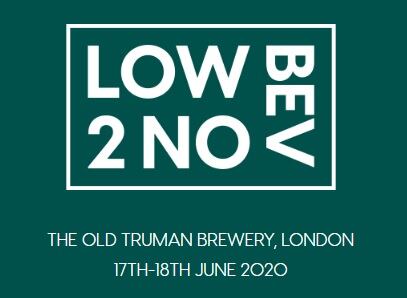
With falling alcohol consumption, more mindful drinking and a trend towards premiumisation, the stage is set for a bright future for the low and no drinks sector.
The Low 2 No Bev Show is a brand new - and unique - dedicated trade event which will be held at The Old Truman Brewery in London in June, 2020.

